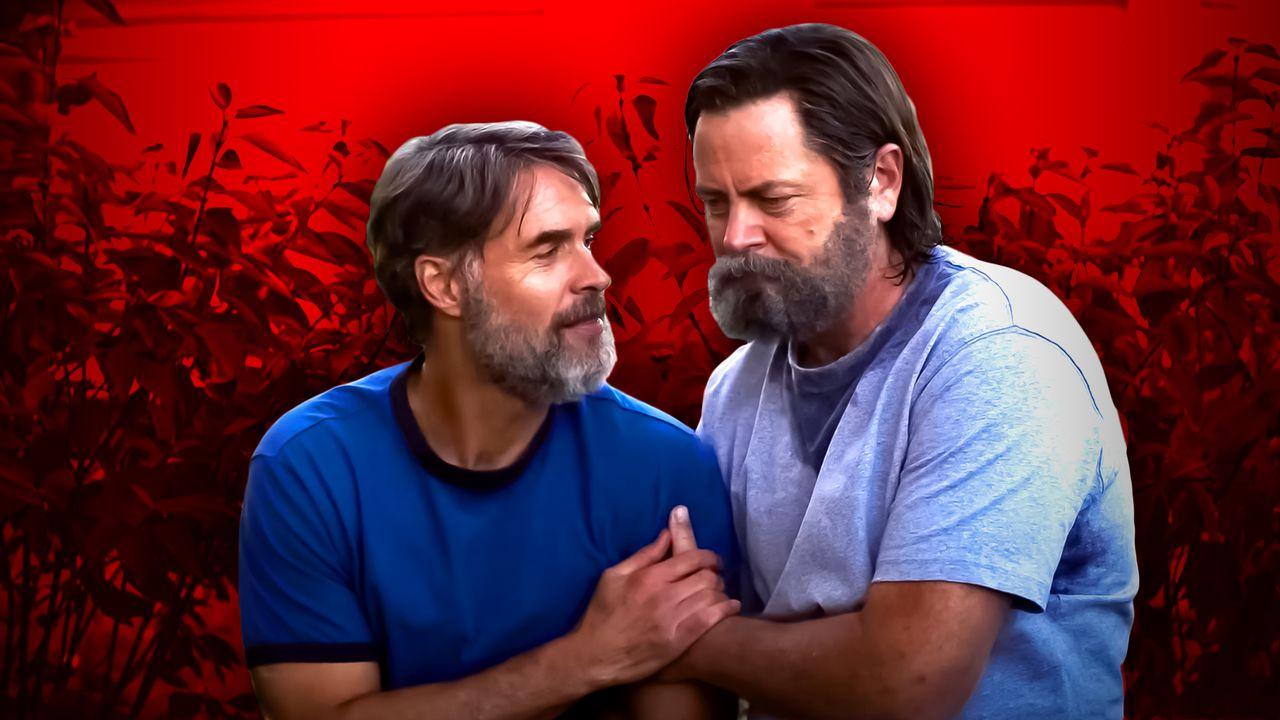
The Last of Us is currently in stasis in between seasons and showrunner Craig Mazin has taken the opportunity to address some criticisms aimed at one of the series' episodes.
Episode 3 of The Last of Us, titled "Long, Long Time" segued from the story of Joel and Ellie to instead focus on two side characters from the game, Bill and Frank. Over a number of years, the episode chronicled the love story between the two characters, played by Nick Offerman and Murray Bartlett, which was something that was only hinted at during the game.
While the third episode was met with almost universal critical acclaim when it was first released, even earning multiple Primetime Emmy nominations, it also received its share of backlash.
The Last of Us Showrunner Addresses Backlash

Speaking in an interview with Indiewire, Craig Mazin addressed the criticisms Episode 3 of The Last of Us received, and why he believes they are unwarranted.
Mazin said that many criticisms were aimed at the show's portrayal of "gay stuff:"
"Some people didn’t like Episode 3 because, you know, gay stuff. And then they kind of retroactively try and come up with a [different and inoffensive] reason why."
The showrunner said that one such excuse labelled 'Long, Long Time' a "filler episode", but Mazin disagreed with this saying it "advances the story more than any other episode:"
“[But] one of the complaints I saw was, ‘Oh, it’s just a filler episode. It doesn’t advance the story.’ And I was like, ‘I think this episode advances the story more than any other episode we have’ — because it’s not plot, it’s character. It’s the letter Bill leaves behind to Joel that powers the rest of the show.”
Mazin added context to the aforementioned letter, saying it is "romantic" but "it's also bad":
“After all that, Bill’s advice to Joel is, ‘Great, but you and I are here to murder anyone that gets close to our Frank. That’s why we are here. We’re here to protect them. And that is romantic. You could argue it’s completely necessary. It’s also bad."
Complex themes like this are what drew Mazin to The Last of Us, and it's these themes that the writer said he "thinks about all the time" as they plan season 2:
"That is what fascinates me about this world. That’s what fascinates me about the themes that were there from the game. And that’s what I thought about and think about all the time as we’re contemplating our next season. I don’t think we have to invent new themes. I think there’s a lot to be explored there.”
Mazin continued by saying one of the core themes the show explores is love, but that "love is the problem" due to what people will do in the name of it:
“To the extent that it might start to feel iterative, all I can say is it’s the problem — love is the problem. It’s the problem now. It’s the problem for all of us. And we don’t like to think of it that way, but it is."
"The odds are that we all will do something beautiful and sacrificial and admirable because of love. And also, all of us are going to do something terrible because of love, something destructive or violent or cruel. Because we’ve invented a word for a part of us we have no control over.”
Love is Love in The Last of Us
In the wake of Episode 3 of The Last of Us, Craig Mazin is not the only one to jump to the defense of Bill and Frank.
Lead star Bella Ramsey, who plays Ellie in the series, defended the LGBTQ+ portrayals in The Last of Us, saying "gay people exist, so why shouldn’t they exist in the apocalypse?".
Similarly, Troy Baker who portrayed Joel in both of Naughty Dog's video games, spoke out saying "I don’t think it needs defending" because "it's a beautiful story".
The Last of Us has always been a diverse series of games, with multiple openly queer-identifying characters. The TV show has been faithful in not only adapting these characters but also expanding on them in ways that the game could not and audiences can probably expect the same level, if not more, of that representation in future seasons.
Season 1 of The Last of Us is streaming now on Max.












